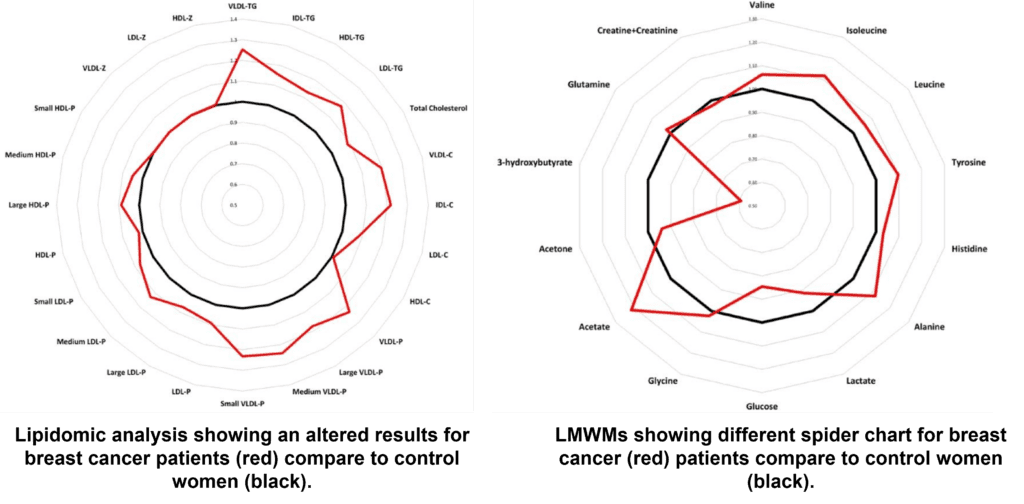One of the key features of malignant tumour cells is that their energy metabolism is altered. However, in recent years, alterations in lipid metabolism have been described in some types of cancer.
A study led by the team of Dr. Josep Gumà and Dr. Sandra Guaita from the Pere Virgili Health Research Institute (IISPV) and the Rovira i Virgili University (URV) has carried out a metabolomic study based on Nuclear Magnetic Resonance (NMR) to study metabolic modifications in patients with breast cancer. To do this, blood serum was collected from 240 women (171 breast cancer patients and 69 control women) with the aim of finding a differential molecular fingerprint between the two groups of patients through advanced metabolomic analysis based on 1H-NMR where the profiling of lipoproteins, glycoproteins, low molecular weight metabolites and the study of lipid families was analysed.
The advanced lipoprotein profile was analysed using the Liposcale test, where it was observed that breast cancer patients had an altered, proatherogenic lipoprotein metabolism, with higher levels of triglycerides in all lipoprotein subfractions (VLDL, IDL, LDL and HDL). In addition, analysis of low molecular weight metabolites showed elevated levels of different amino acids, including alanine, tyrosine and branched amino acids in breast cancer patients, as shown in the full study results.
This study has shown the usefulness of metabolomic profiling analysis by 1H-NMR for the identification of metabolic signatures that could be used in the diagnosis and prognosis of breast cancer patients.



